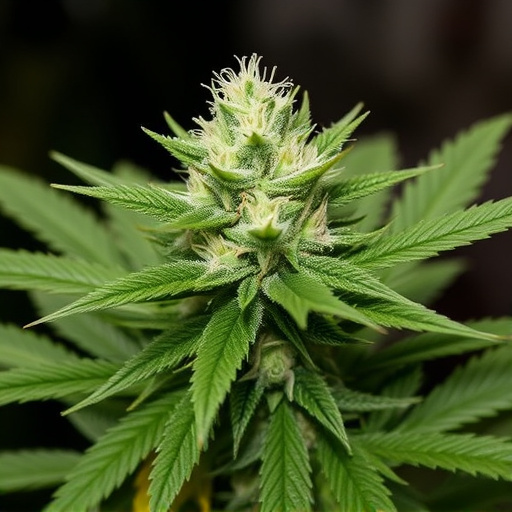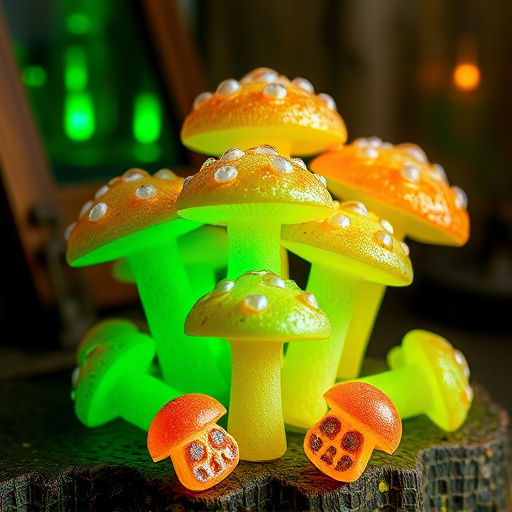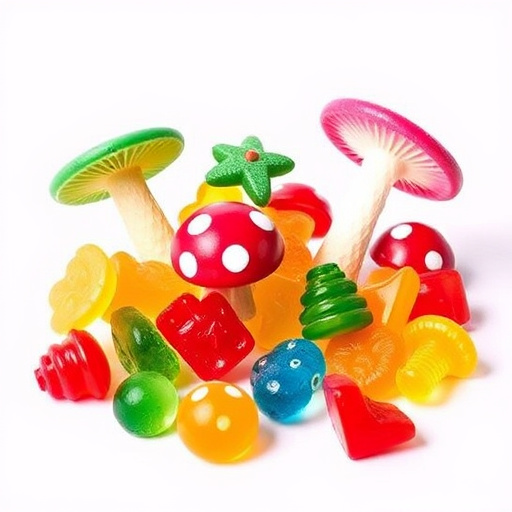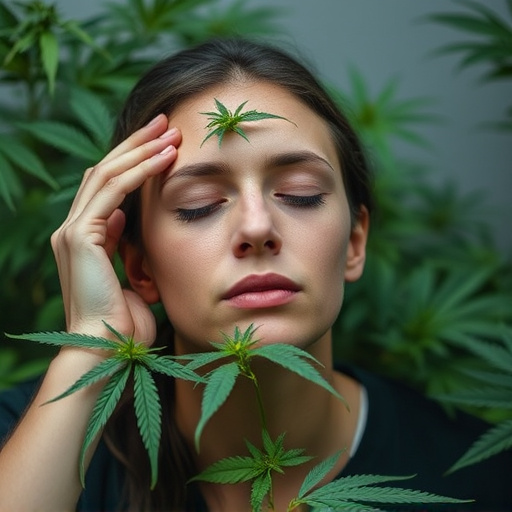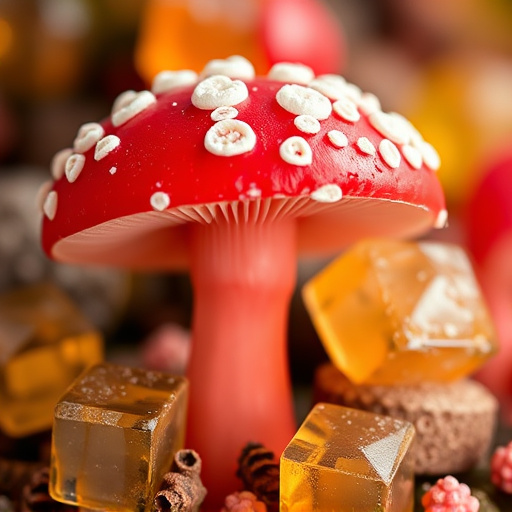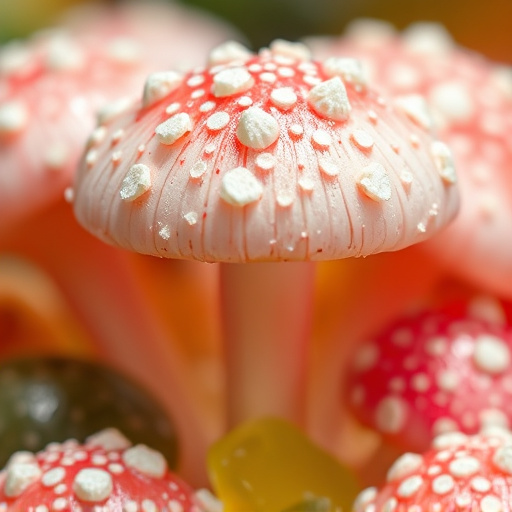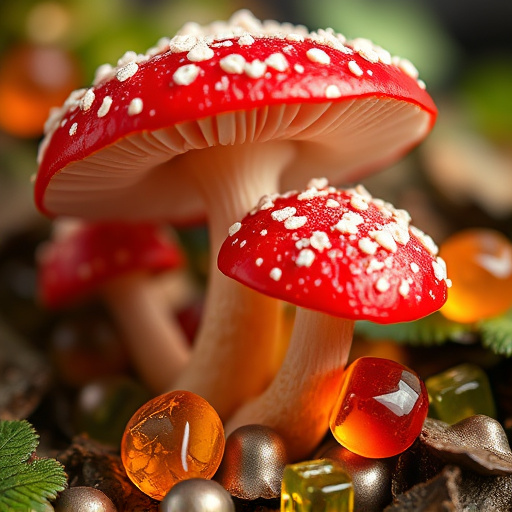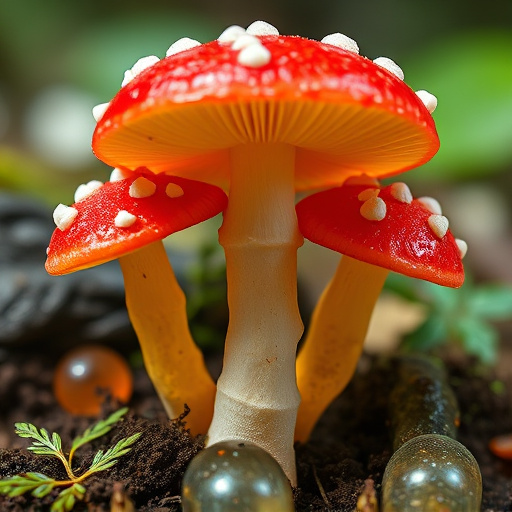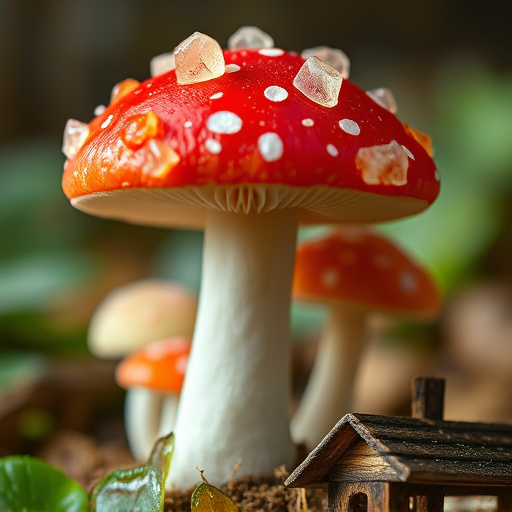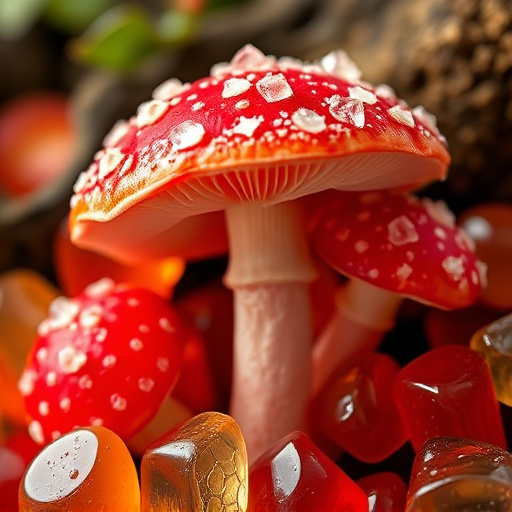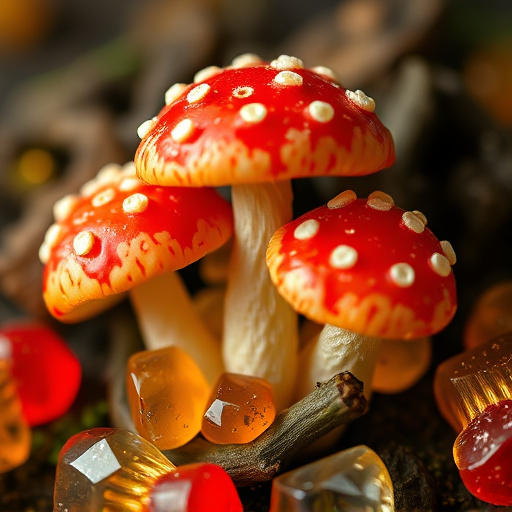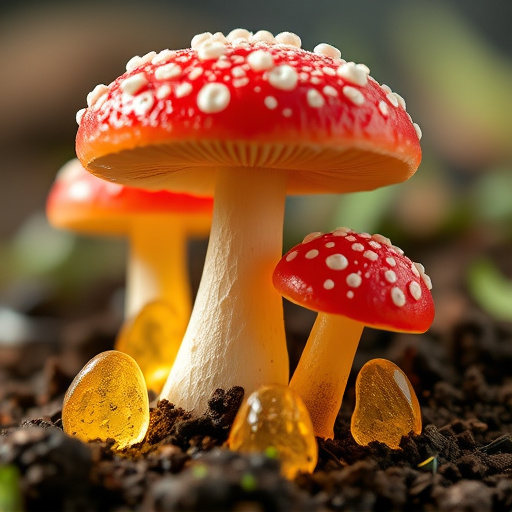Magic Mushroom Gummies infused with psilocybin are gaining attention as a potential aid in addiction recovery, leveraging their interaction with brain serotonin receptors to improve mood, reduce cravings, and enhance cognitive functions. However, due to variable effects and potential risks like anxiety or hallucinations, their use requires professional guidance. Ongoing research aims to establish safety, efficacy, and individualized treatment protocols through clinical trials, offering hope for innovative therapeutic strategies in addiction treatment.
Exploring the potential of Magic Mushroom Gummies as a tool for focus and addiction recovery is an intriguing development in the wellness realm. This article delves into the unique benefits of these innovative products, focusing on their role in enhancing cognitive function and aiding those in recovery. We’ll examine how magic mushrooms, known for their therapeutic effects, are now accessible through gummies, offering a discreet and potentially effective solution. Additionally, we’ll discuss safety aspects and future research directions for this emerging trend in addiction treatment.
- Understanding Magic Mushroom Gummies and Their Potential Benefits
- The Role of Magic Mushrooms in Addiction Recovery
- Safety Considerations and Future Research Perspectives
Understanding Magic Mushroom Gummies and Their Potential Benefits
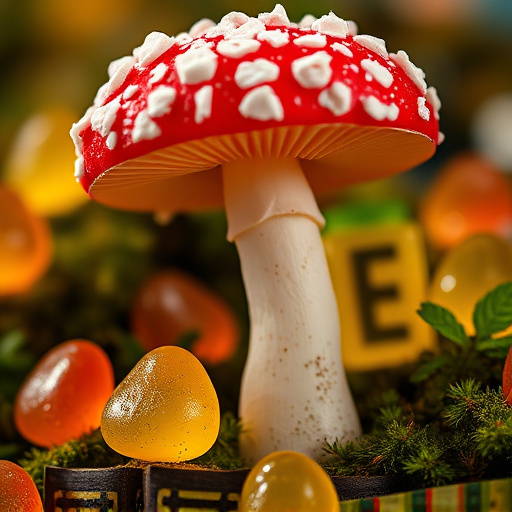
Magic Mushroom gummies, as the name suggests, are edible treats infused with psilocybin, a compound found in certain types of mushrooms known for their psychoactive properties. These gummies are gaining popularity not only for their potential recreational uses but also for their purported therapeutic benefits, especially in addiction recovery. In recent years, there has been growing interest in microdosing magic mushrooms for focus and mental clarity, with some claiming it enhances creativity and overall well-being.
The idea behind using Magic Mushroom Gummies for focus is that psilocybin can interact with serotonin receptors in the brain, leading to altered states of consciousness and heightened cognitive functions. This can potentially help individuals in addiction recovery by improving mood, reducing cravings, and offering a more positive outlook on life. Research suggests that psilocybin-assisted therapy could be a game-changer in treating various mental health disorders, including depression and anxiety. However, it’s essential to approach this alternative treatment with caution and seek professional guidance.
The Role of Magic Mushrooms in Addiction Recovery
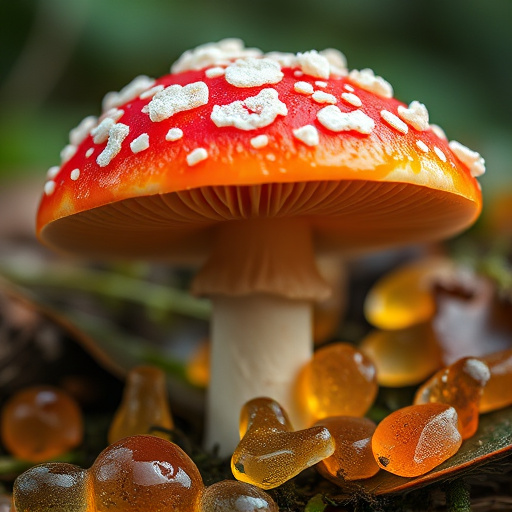
Magic mushrooms, scientifically known as Psilocybin, have been making waves in the realm of addiction recovery. Research suggests that psilocybin-assisted therapy can significantly aid individuals battling substance use disorders. The active compounds in magic mushrooms offer a unique approach to treating addiction by addressing the root causes and underlying conditions that contribute to drug abuse.
In the context of addiction recovery, Magic Mushroom Gummies for Addiction Recovery provide a novel and potentially effective method. These gummies, infused with controlled doses of psilocybin, can facilitate therapeutic experiences that promote self-reflection, emotional processing, and mental clarity. By helping individuals gain deeper insights into their triggers and patterns of behavior, these gummies support long-term recovery goals. Additionally, the calming and mood-regulating effects of magic mushrooms may reduce cravings and anxiety, fostering a smoother path to overcoming addiction.
Safety Considerations and Future Research Perspectives
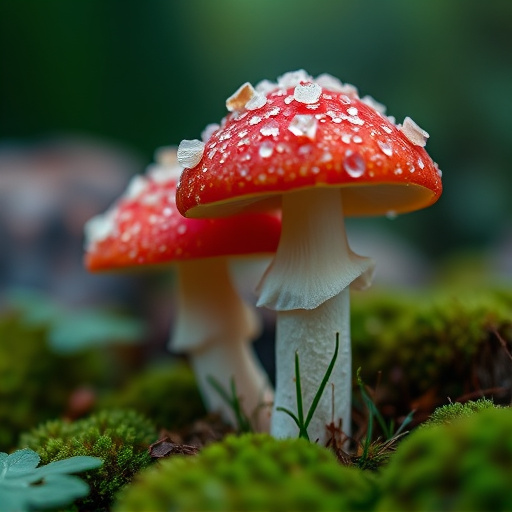
While Magic Mushroom gummies show promise as a therapeutic tool, particularly in addiction recovery, it’s crucial to address safety considerations. The effects of psilocybin, the active compound in magic mushrooms, can vary greatly between individuals and be intense. Furthermore, their use is not without potential risks, including adverse reactions like anxiety, paranoia, or hallucinations. Research suggests that these experiences are often temporary and rare, but close supervision in a safe environment by trained professionals is essential for those exploring psilocybin-assisted therapy.
Future research perspectives for Magic Mushroom Gummies for Addiction Recovery hold significant promise. Controlled clinical trials could further establish the efficacy and safety of this approach. Understanding individual responses to psilocybin can help tailor treatment protocols, ensuring optimal outcomes while minimising risks. Expanding knowledge in this area may lead to innovative therapeutic strategies, potentially offering new hope for those struggling with addiction.
Magic mushroom gummies, while offering potential benefits for focus and addiction recovery, require further research and safety considerations. The current evidence suggests that these edibles could be a promising alternative therapy, especially in controlled settings. However, more studies are needed to fully understand their efficacy and long-term effects. As with any substance, responsible use and professional guidance are essential when considering magic mushroom gummies for addiction recovery.
